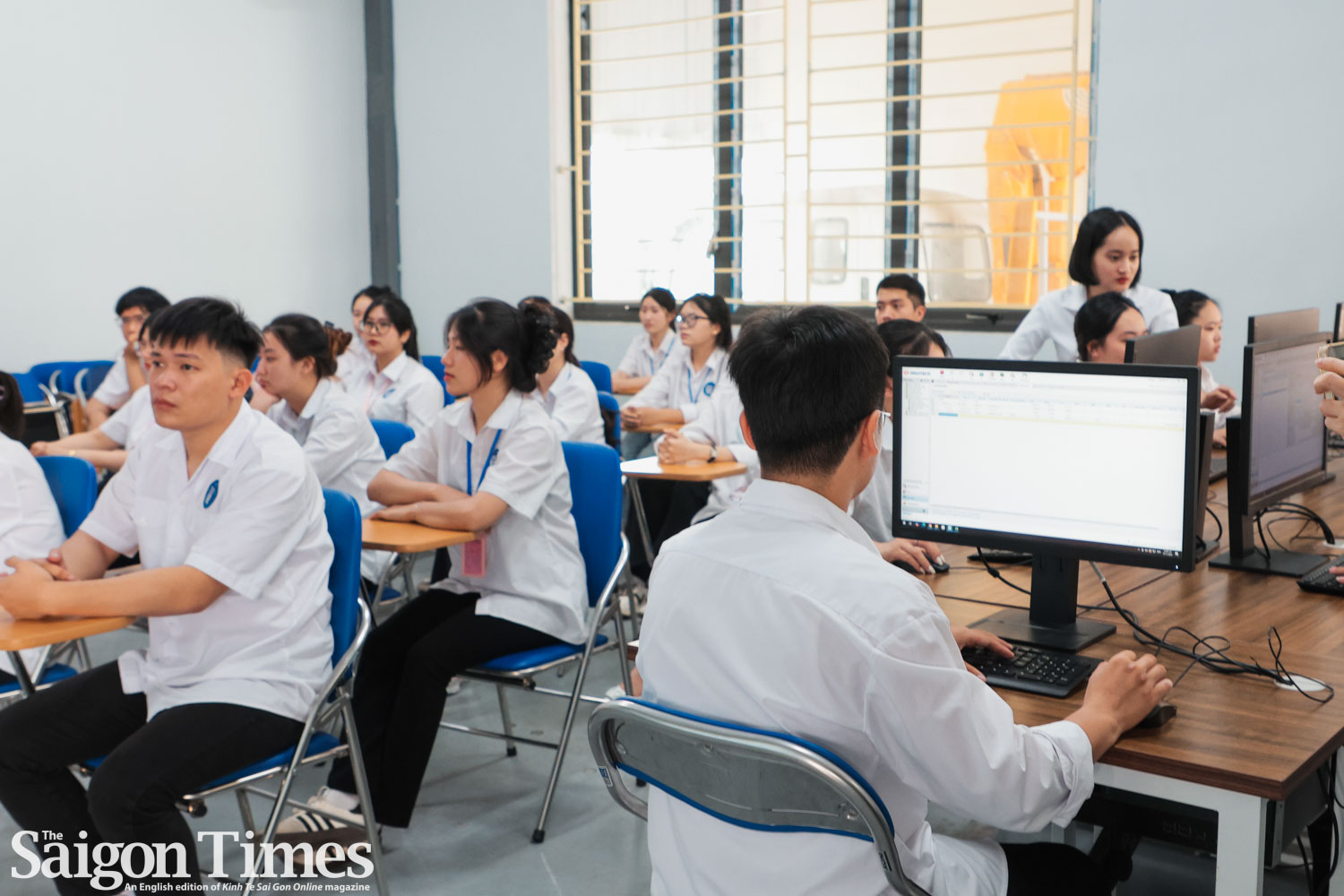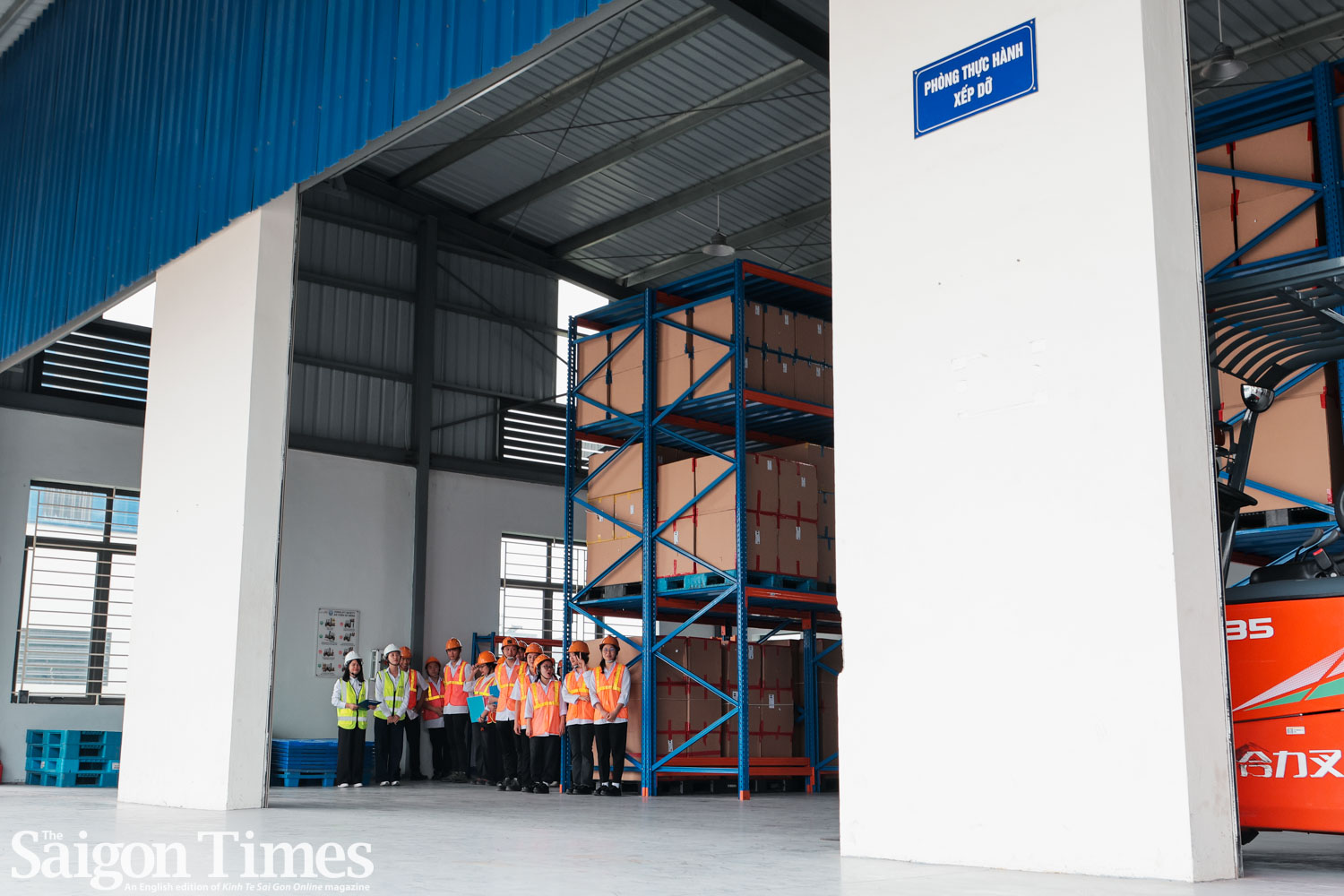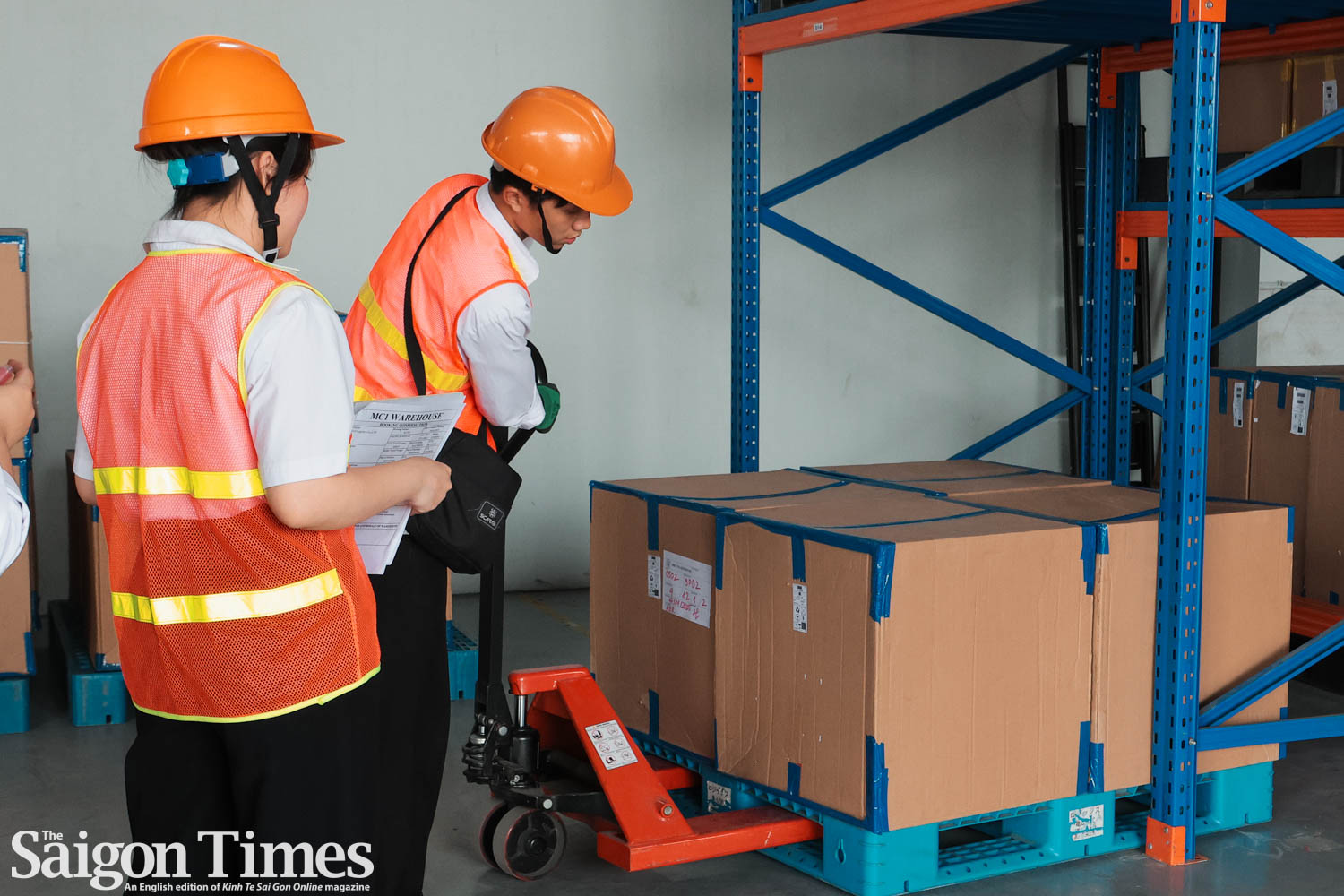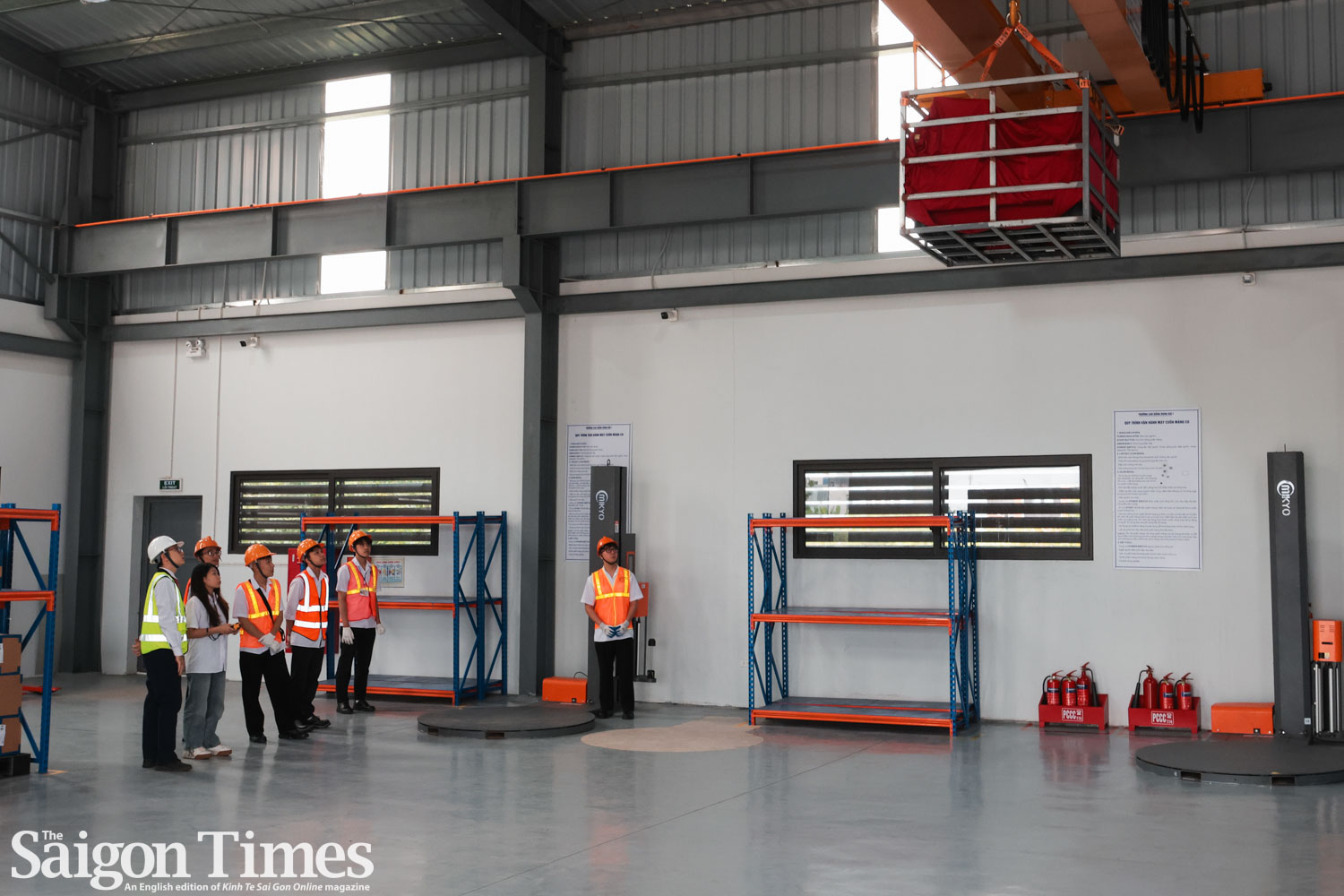HAIPHONG – For many students, entering the logistics workforce can be daunting. The work is fast-paced, and new graduates often struggle to apply classroom theory to real-world operations. Yet second-year logistics student Doan Huong Tra says she will step into the warehouse with firm confidence which many new graduates lack.
Tra is one of over 15,300 students benefiting from the Australia–Vietnam Human Resource Development Program (Aus4Skills). Her confidence comes from training under the program’s Aus4Skills VET project, which modernized the logistics programs at Maritime – Inland Waterway College No. 1 (MIC1) in Haiphong City.
The project introduced competency-based training and assessment (CBTA), strengthened partnerships with logistics companies, and allowed students to practice real workflows through hands-on modules in goods receiving and storage, packing and shipping, and forklift operations. Internships and on-site exercises let students experience workplace tasks before graduation, reducing uncertainty and improving readiness.
“The courses combine theory with practice,” Tra told The Saigon Times. “By the time we start our internships, the work feels familiar. I feel confident I can handle the tasks and adapt to company workflows,” she added.
The Aus4Skills initiative, funded at A$86 million, aims to build a skilled workforce for Vietnam’s economy. One of its five components, the Aus4Skills VET project, promotes industry-led, sustainable, high-quality vocational training that equips students with skills employers need.
Before the program, MIC1’s logistics courses were heavily theoretical. Students often lacked exposure to real company processes, forcing employers to retrain graduates before they could contribute effectively, according to Do Hong Hai, vice principal of MIC1.
The Aus4Skills VET project sought to bridge this gap by integrating industry knowledge into the curriculum and providing structured, practical training opportunities.
Three pilot CBTA modules—goods receiving and storage, packing and shipping, and forklift operations—were developed and tested at MIC1. They were successfully piloted and became models for replication. Alongside training, MIC1 upgraded teaching facilities, adopted quality standards, and expanded partnerships with logistics companies, transforming the college into a model vocational school in the field.
The program’s results are measurable. Logistics enrollment at MIC1 rocketed 263%, from 149 students in 2019 to 385 in 2025. The number of partner companies signing memorandums of understanding (MOUs) with MIC1 rose from 12 to 21. Graduate employment rates now approach 100%, among the highest in Vietnam’s vocational colleges.
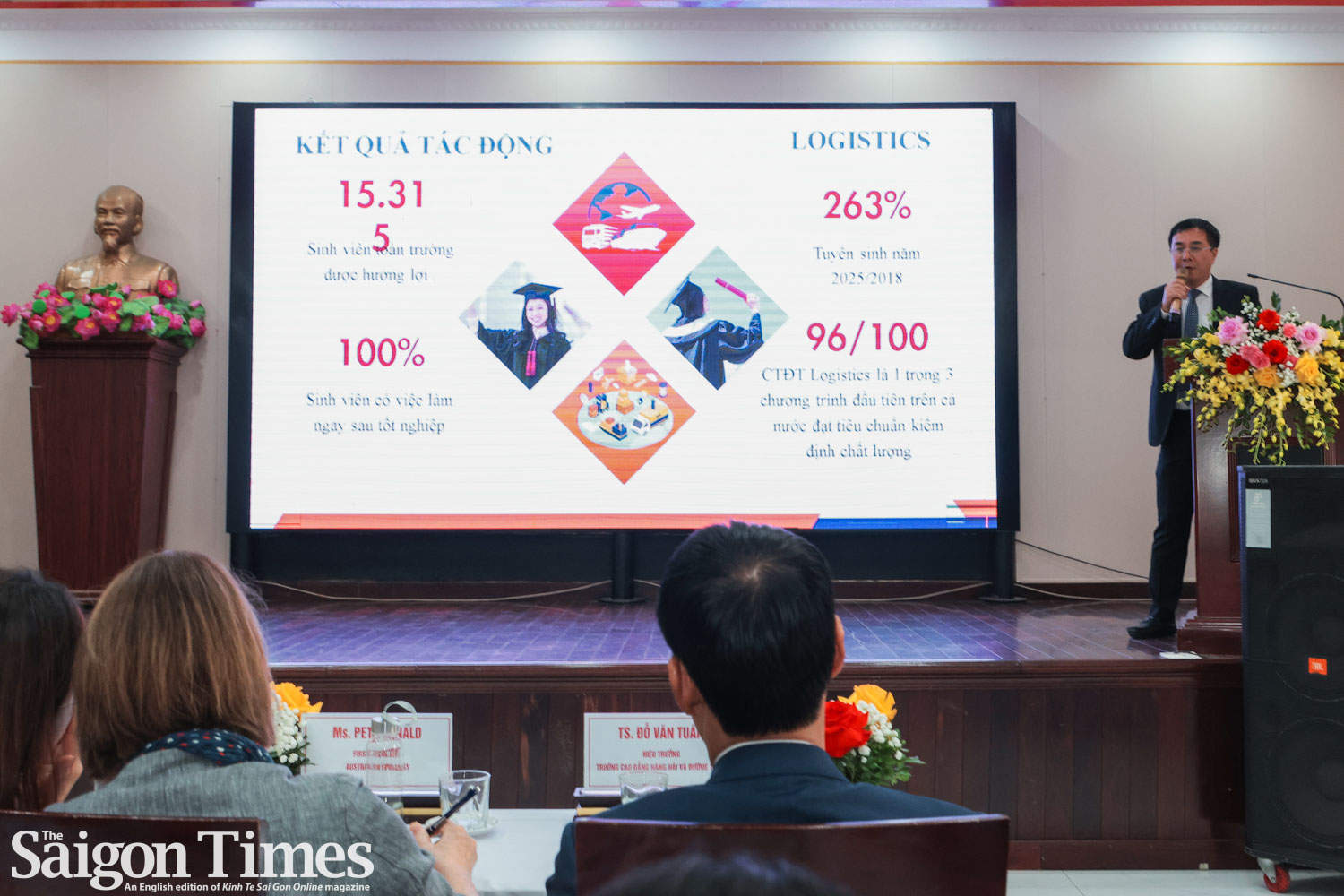
Students report the impact on their learning and employability. Hoang Gia Long, who interned at two companies while still in school, said the program aligned closely with workplace practices. “The workflows I followed in the company closely matched what we learned in school,” he said. “It made the transition much smoother than I expected.”
Nguyen Huu Son, a 2022–2025 graduate now working at GoldenLink Logistics JSC, said CBTA modules prepared him for nearly all aspects of his role. “During internships, I understood 80–90% of real workflows,” he said. “Communication and teamwork skills were strengthened. When I started full-time, I was confident in performing tasks and only needed guidance for unusual situations.”
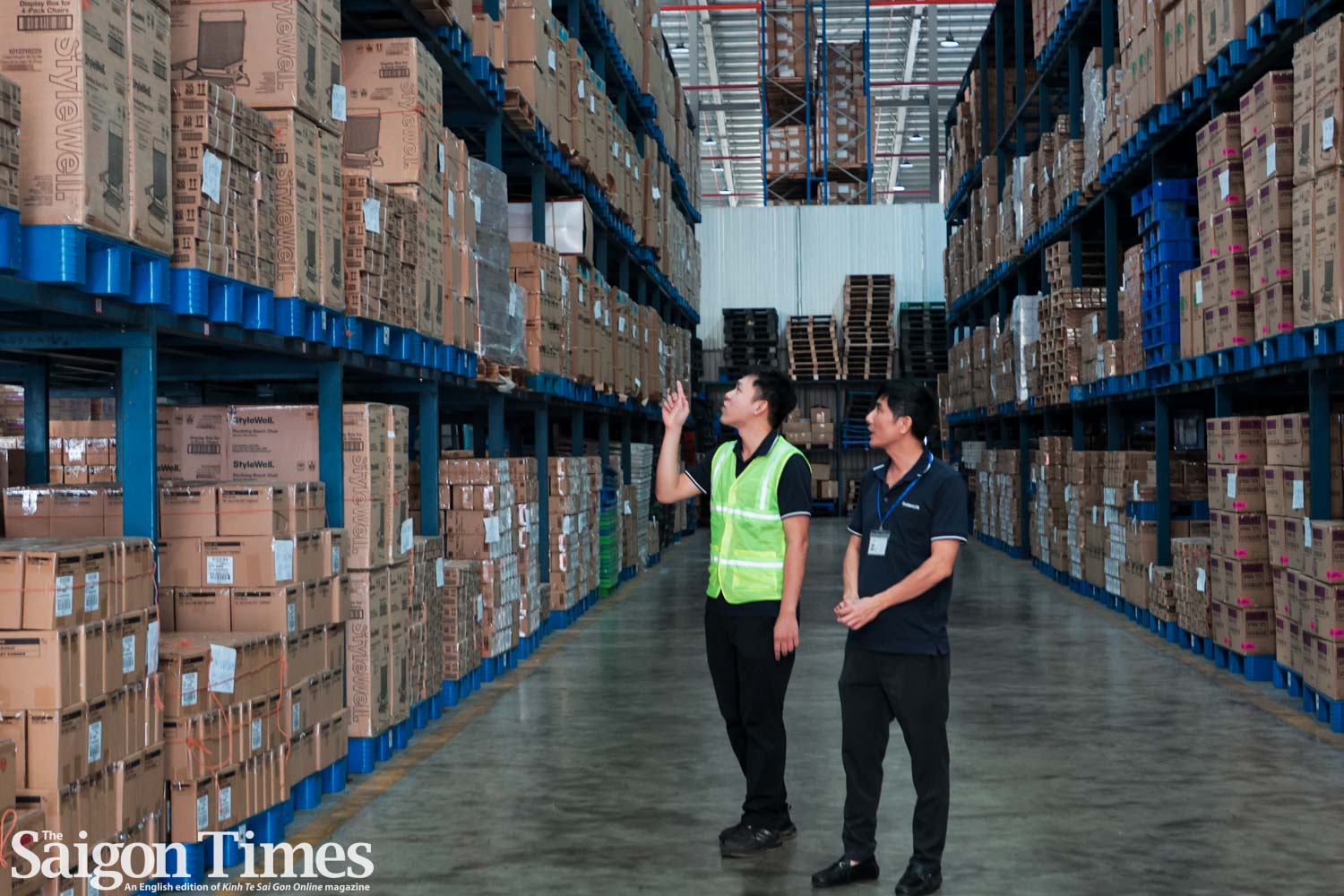
Employers have also noticed the difference. Golden Link JSC has hosted more than 300 interns from MIC1 and hired eight graduates, including two in key positions overseeing documentation and domestic cargo operations. “Previously, we had to retrain new hires. Students from Aus4Skills programs already understand our procedures. Collaboration with MIC1 is highly effective, and we plan to recruit more as we expand warehouse capacity next year,” said Tran Minh Duc, deputy director of Golden Link JSC.
The program addresses broader workforce shortages in Haiphong City. Duc said demand is highest for warehouse staff, storekeepers, and forklift operators—roles currently in short supply. Meanwhile, digitalization, global supply chain pressures, and green transition requirements are increasing the demand for qualified workers.
According to Nguyen Minh Duc, vice chairman of the Haiphong Logistics Association, companies need employees who can work in a digital and increasingly international environment. Students trained through Aus4Skills demonstrate professionalism and readiness to enter the workforce.
The program also promotes inclusive skills development, integrating GEDSI principles—gender equality, disability, and social inclusion—while quality frameworks ensure competency standards across logistics and related sectors.
MIC1 has moved from a beneficiary to a co-developer of training. The college now contributes to logistics skills forecasting, hosts technical workshops, and supports CBTA instruction for other vocational institutions through the Australian Alumni Grants Fund (AAGF). Collaboration with industry ensures curricula reflect real workflows, allowing students to practice job tasks at school and adapt quickly once employed.
Tra said the program has changed her perspective on learning. “The knowledge is structured from basic to advanced. We get hands-on practice and exposure to company environments early. It’s preparing us not just to graduate but to work effectively from day one,” she said.
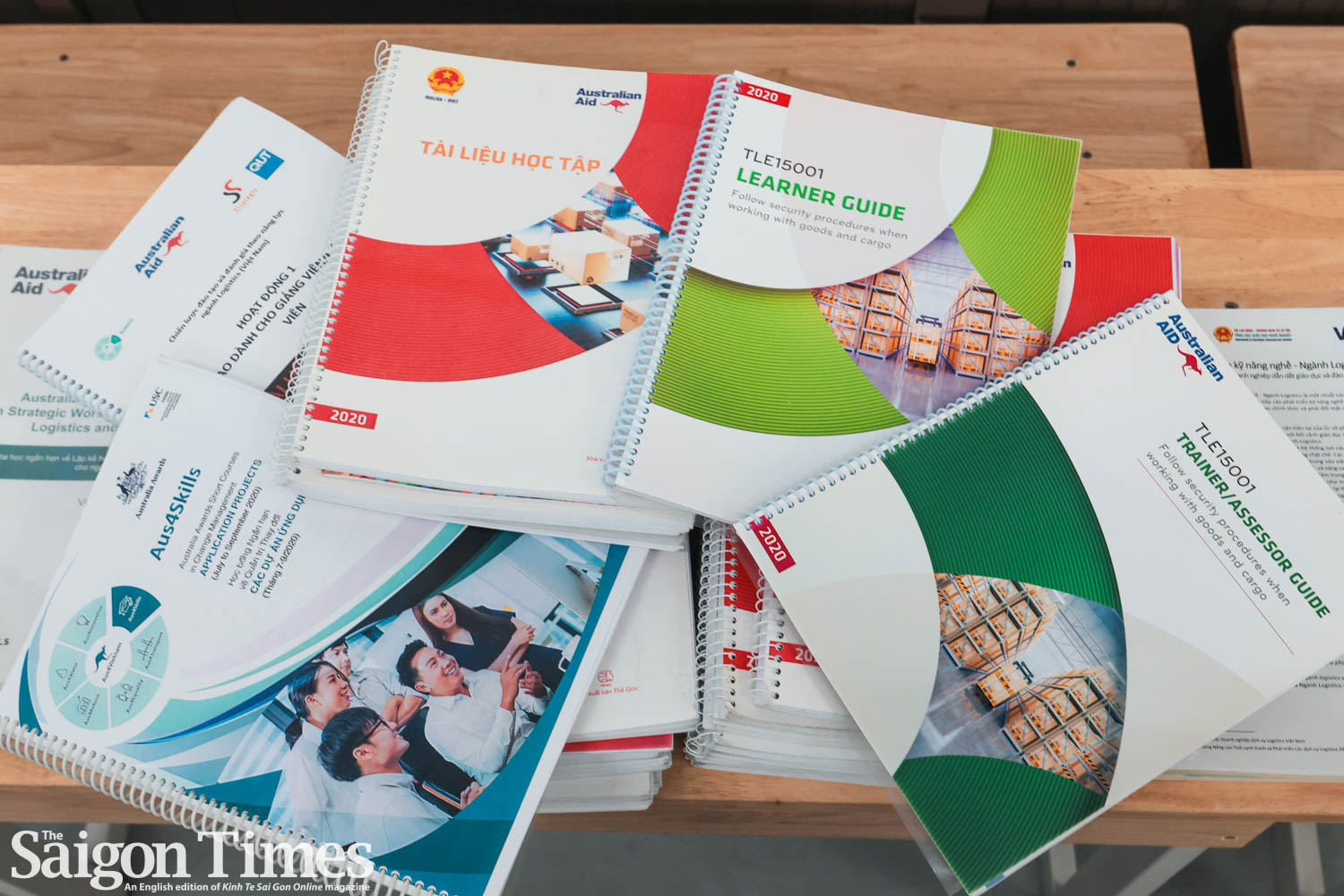
Long-term, the program aims to reshape Vietnam’s vocational education system for logistics. Pilot CBTA modules, the Logistics Training Center, and strengthened school-industry collaboration serve as models for other institutions nationwide.
“Australia is proud to be sharing our world-leading vocational education and training system with Vietnam, to help drive economic growth”, said Gillian Bird, Australian ambassador to Vietnam. “In the field of logistics for example, logistics companies are becoming more efficient and productive as they have access to more job-ready graduates who have received practical training.”
As Vietnam’s logistics sector continues to grow, programs like Aus4Skills VET demonstrate how collaboration between government, vocational colleges, and industry can produce a workforce ready for the challenges of a globalized supply chain. For students like Tra, Long, and Son, the program is not just about passing exams—it is about stepping confidently into careers that match the needs of the modern logistics industry.
